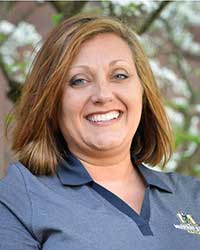Story by Courtney Scoby, Staff writer
On campus health services facilities are in place to give students better access to healthcare options, often at reduced rates. However, Health Services may be falling behind their other university counterparts because of cuts to funding from the state.
Here are the services that Health Services provides, as listed on their website:
Physical assessment for illness or injury
Treatment for illness and minor injury
• Crutches
• Referrals
Laboratory services (including complete blood counts, urinalysis, rapid strep tests, pregnancy tests, sexually transmitted infection testing, and additional fee-based testing through LabCorp)
• HIV testing/counseling
• Evaluation of health risks
Tobacco cessation/counseling
• Health promotion
• Health education
Very few of these include much-needed women’s health services. However, Health Services does provide some services that cater specifically to women’s needs.
“MSU Health Services provides women’s health services such as breast exams, sexually transmitted infection testing, gynecological exams, pregnancy testing and women’s health counseling,” said Kimberly Paschall, director of Health Services.
Breast exams, gynecological exams and women’s health counseling are mentioned nowhere on the website, which often keeps students in the dark as to their options.
“I am not aware of any specific women’s health services [on campus],” said Ashley Morgan, senior from Clarksville, Tennessee.
Nevertheless, these services are popular on campus.

“During 2014, Health Services had 970 gynecological visits that included pelvic exams, breast exams and any other concerns of the female reproductive system,” Paschall said.
However, female students at Murray State seem to be at a disadvantage when it comes to women’s health services on campus.
In addition to providing free male condoms in their waiting rooms, Campus Health Services at the University of Louisville provide free female condoms upon request. The Plan B, or “morning after” pill is available for purchase and select sexually transmitted infection tests are free, though others are paid for out of pocket. Pap smear tests are another on-campus option for female University of Louisville students.
The University of Kentucky seems to have the largest selection of women’s health services on any campus across the state though.
University Health Services at UK has a separate Women’s Clinic with several doctors specializing in women’s health. Issues of gynecological, reproductive and sexual health concern are addressed, and a extensive array of birth control options are offered to students through the University Health Service Pharmacy.
“Birth control pills, the birth control patch (Ortho Evra), the vaginal ring (NuvaRing) and the birth control shot (Depo Provera) are available by prescription in the UHS Pharmacy,” according to their website.
Students are also eligible for significant discounts on these items if their prescription is written by a UHS clinician.
Plan B is offered without a prescription at a discounted rate as well.
Murray State Health Services did not always fall a step behind other universities, however. Several other women’s health services used to be offered on campus until cuts in state funding took these options away.
“State funding for the family planning program was discontinued, by the state, during 2010,” Paschall said. “This program provided Health Services with additional staff, equipment and clinical supplies that supported our conducting cervical cancer screenings and providing oral contraceptives on campus.”
Plans are being made to try to reinstate some of these services in the future, however.
“We, along with MSU School of Nursing, have been exploring grant funding that is potentially available for us to provide family planning services, which could include oral contraceptives,” Paschall said.
In the meantime, the majority of women’s health services are redirected to other organizations within the community.
“Women now seeking family planning services are referred to the Calloway County Health Department or other local healthcare providers, which are located within two miles of campus,” Paschall said.
Although many of the services Health Services is not able to offer female students on campus can be provided relatively close to campus, many students may not be able to take advantage of the services offered at the local health department or other local health providers due to lack of transportation or problems with insurance.
The Women’s Center on campus sounds like another viable option for female students looking for women’s health services but deals a lot in referrals as well.
“The Women’s Center works with students, individually, to locate and contact appropriate healthcare providers in the community,” Abigail French, director of the Women’s Center, said. “If a student would prefer to make an appointment with someone in their hometown we help them to locate and contact those providers as well.”
Some Murray State students are not completely satisfied with the current array of women’s health services on campus.
“I think rather than referring so many women to other places (like the Health Department and healthcare providers), a women’s health professional should be available at Health Services to provide information and other women’s health services,” Morgan said. “We pay our tuition and are told it goes to a variety of stuff, including Health Services, but then we have less than basic accommodations and I think they should have more basic offerings of services including but not limited to resources for women and women’s health.”
One of the main concerns for female students is the lack of access to birth control.
“I do think the Health Services should definitely provide birth control,” Morgan said. “With easier access to birth control many women wouldn’t need Plan B, and since it is available for women at a low cost or free elsewhere, it seems logical that a place for health on campus should offer it.”
This may be an option at Murray State again at some point.
“Grant funding could possibly be available in the future to support the return of family planning services on campus,” Paschall said. “This funding will be further explored as resources allow.”




























































































